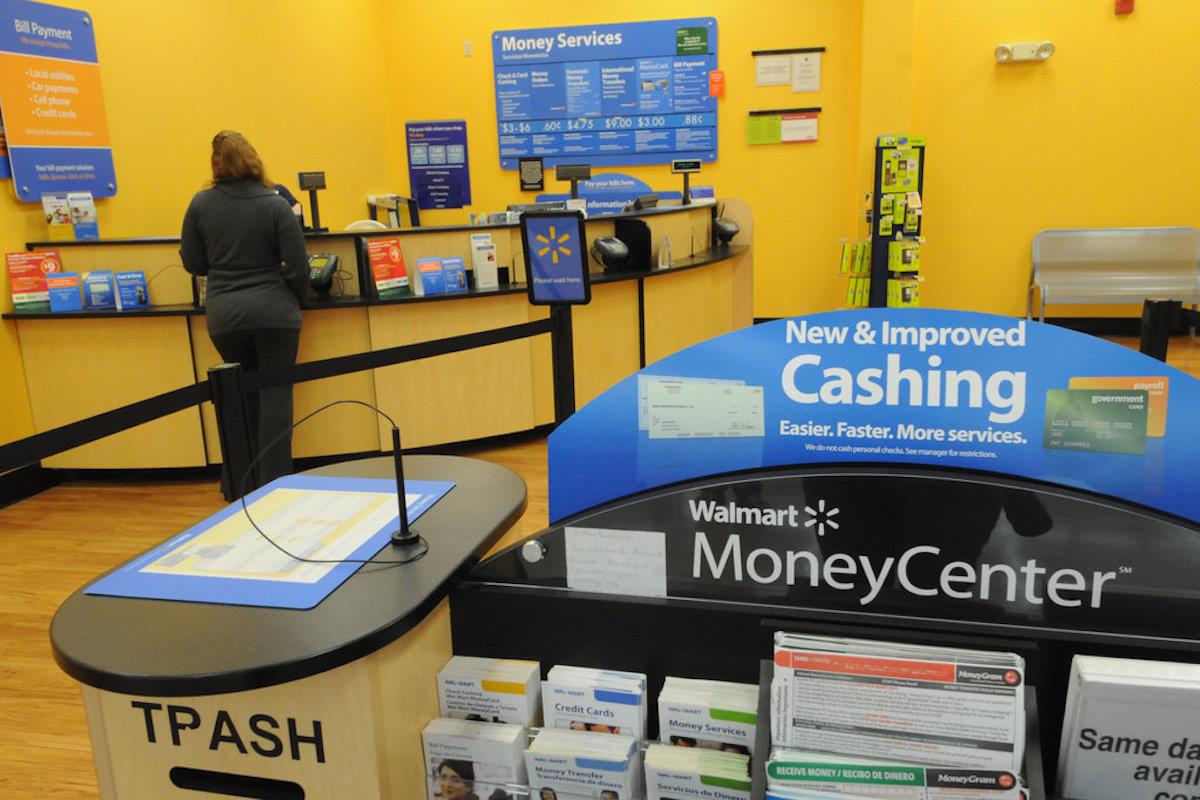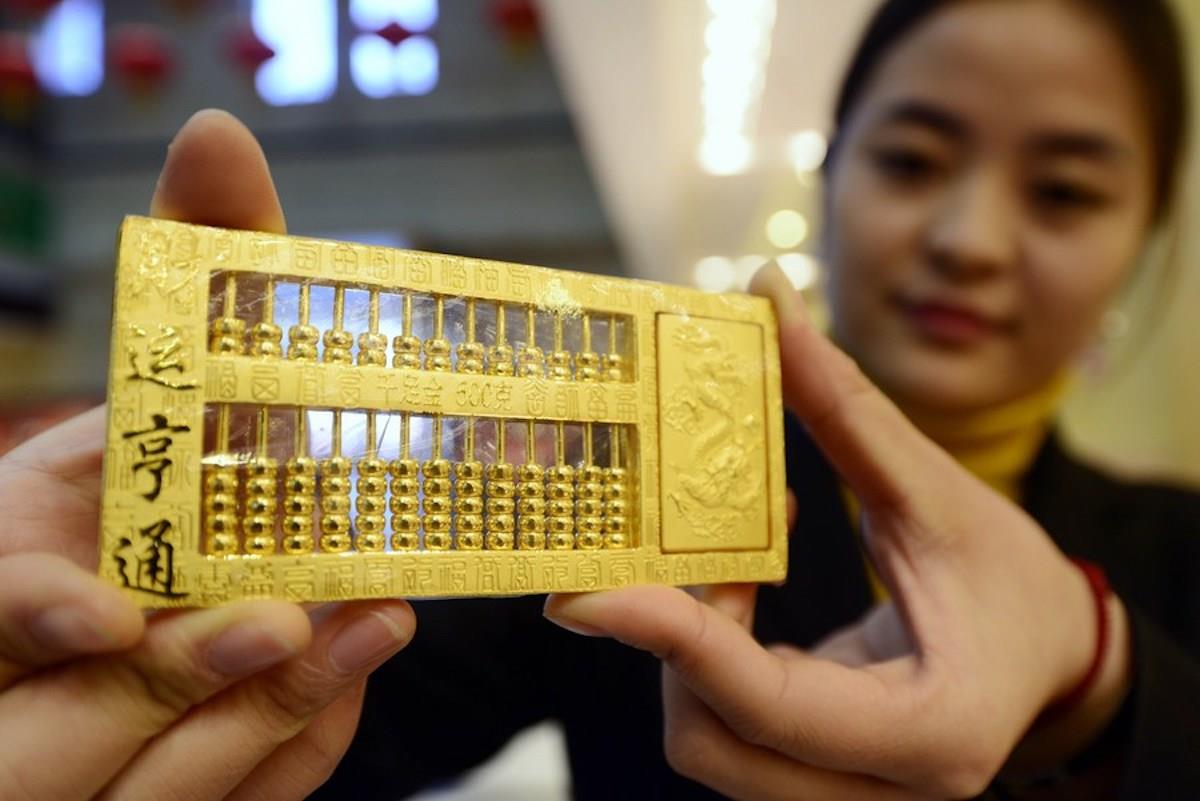
Chinese Gang Nailed In Huge Walmart Gift Cards Scam
This article was originallly published by ProPublica, a Pulitzer Prize-winning investigative newsroom. It is republished with permission.
Christy Browne was in a panic. The man on the phone said he was from the FBI. He warned her that drug traffickers had obtained her Social Security number and were using it to launder money. He said the FBI needed money to catch them.
<script type=”text/javascript” src=”#8221; async=”true”></script>
“They told me not to go to local law enforcement,” Browne testified in court recently about the February 2020 call. The police were watching her and considered her a suspect, the man said.
At his direction, Browne, a retired elementary school teacher who lives in upstate New York, bought four $500 Walmart gift cards at her local Walmart. It was 3:15 pm. She took photos of the serial numbers and PINs on the back and texted them to the man on the phone. With that information, the fraudster had access to $2,000.
That was only the first step. The gift card numbers were then sold to Qinbin Chen, a Chinese national living in Virginia. At 5:47 pm, Chen passed the numbers to a co-conspirator waiting near a Walmart in Sterling, Virginia.
Just eight minutes later, at 5:55, the accomplice did something that an ordinary consumer would rarely do, but which is routine for fraudsters: use one gift card to buy another. With the numbers from Browne's Walmart cards, he purchased Apple, Google Play and other gift cards at the store's self-checkout kiosk. He sent the serial numbers and PINs for those cards to Chen, who then sold them to a buyer in China. Transferring the money to other companies' gift cards for use in another country made it impossible for Walmart to figure out where the funds ended up. Browne had no way to recover her $2,000.
She was far from the only victim. Chen oversaw the laundering of some $7 million in fraudulently obtained gift cards, according to the Department of Justice. It was a complex international operation involving hundreds of victims, thousands of gift cards and multiple co-conspirators in the US and China.
Federal prosecutors would give it a simple name:“The Walmart scheme.”
America's largest retailer has long been a facilitator of fraud on a mass scale, a ProPublica investigation has found. For roughly a decade, Walmart has resisted tougher enforcement while breaking promises to regulators and skimping on employee training, according to more than 50 interviews, internal documents supplied by former industry executives, court filings and other public records.
Scammers dupe a victim, as they did with Browne, and then they exploit Walmart's lax systems to get paid quickly and easily. That's been true whether the fraudsters use Walmart gift cards or instruct customers to send funds by electronic money transfer. The company, in the latter instance, is supposed to be on the lookout for fraud and asking questions: Do you know the person you're sending money to? Is the money transfer related to a telemarketing offer?
Too often, Walmart has failed. More than $1 billion in fraud losses were routed through the company's financial systems between 2013 and 2022, according to filings by the Federal Trade Commission and court cases analyzed by ProPublica. That has helped fuel a boom in financial chicanery. Americans, many of them elderly, were swindled out of $27 billion between 2013 and 2022, according to the FTC.
Walmart has a financial incentive to avoid cracking down. It makes money each time a Walmart gift card is used and earns a fee when another brand of card is bought. And it receives one commission when a person sends a money transfer and a second when the recipient picks it up. The company's financial services business generates hundreds of millions in annual profits. (Its filings do not provide specific figures for gift cards and money transfers.)
“They were concerned about the bucks. That's all,” Nick Alicea, a former fraud team leader for the US Postal Inspection Service who investigated Walmart for years, told ProPublica.
Walmart's deficiencies have repeatedly attracted government scrutiny. In 2017, the attorneys general of New York and Pennsylvania investigated Walmart over concerns that it was“reaping the benefits” of gift card fraud. The investigation concluded a year later with Walmart promising to restrict or eliminate the use of its gift cards to purchase other gift cards, a favored tactic of fraudsters such as Chen. Instead, the company let the practice continue until 2022 - even after it knew that millions of dollars were being laundered through its stores.
The FTC sued Walmart in 2022 , alleging it“turned a blind eye” as criminals took advantage of its money transfer service. Walmart, the FTC claimed, pocketed millions in fees while“letting fraudsters fleece its customers.” Summarizing the FTC's evidence, a federal judge in the case wrote that“Walmart knew that its services were used by fraudsters” and that the company was repeatedly warned about certain stores where“twenty-five, fifty, or even seventy-five percent of money transfer activity was fraudulent.” Separately, a federal grand jury in Pennsylvania is hearing evidence of possible criminal conduct in Walmart's money transfer business, according to corporate filings that did not detail the allegations.
None of this appears to have slowed Walmart's ambitions to grab an ever-bigger portion of the financial services market. After years of offering gift cards and prepaid cards, money transfers and check cashing, in 2022 Walmart acquired an online banking platform called One, broadening its financial offerings even further.
But as the company seeks to grow, there is reason for caution. Not only is Walmart continuing practices that ease the way for fraudsters, its previous failings go deeper than the government has alleged, ProPublica found. Its long record of spotty training and compliance, and its refusal to take responsibility for the fraud perpetrated using its systems, cast doubt on its ability to run a sprawling financial business, experts and current and former Walmart employees said.
Walmart strenuously defends its anti-fraud efforts. In a statement, the company said its push into financial services has saved customers without traditional bank accounts $6 billion in fees. The company asserted that it has blocked more than $700 million in suspicious money transfers and refunded $4 million to victims of gift card fraud.“Walmart offers these financial services while working hard to keep our customers safe from third-party fraudsters,” it said.“We have a robust anti-fraud program and other controls to help stop scammers and other criminals who may use the financial services we offer to harm our customers.”
The company's legal filings in the FTC case struck a different tone. Walmart is seeking to dismiss the suit, partly on the grounds that it has“no responsibility to protect against the criminal conduct of third parties.” Though fraud is“deeply unfortunate,” Walmart argues, such schemes are“reasonably avoidable by consumers.” The company also asserts that the FTC is exceeding its authority in bringing the action. (The judge upheld the FTC's authority and allowed the suit to continue. He dismissed a second count, which accused Walmart of violatting a rule relating to telemarketing fraud, but permitted the FTC to re-file the claim and address his objections.)
Walmart's weaknesses provided an opportunity for Chen, whose operation is the largest gift card laundering scheme ever prosecuted by US law enforcement, based on a ProPublica analysis of court records. Including Chen, at least 28 state and federal defendants - almost all from China - have been convicted of using gift cards obtained from fraud victims to transfer tens of millions of dollars through Walmart. It's likely that many more have avoided detection. One prosecutor called gift card schemes a“worldwide effort to empty the United States of its retirement funds.”
Chen spent five years laundering Walmart gift cards before he was arrested in 2021, according to evidence that would emerge in court. Earlier that year, he complained to an associate that more and more people were competing to resell cards in China, eating into his profits.
So many scammers were flocking to Walmart that he and his team regularly encountered them at self-checkout counters.“All of a sudden, a lot more people started to do it in the past couple of years,” Chen wrote in an online message.“We ran into quite a few at the store, and we even started chatting.”
Store #2038, in the Washington, D.C., suburb of Sterling, Virginia, has much in common with the 4,621 other Walmarts across America. A giant US flag stands out front. Walmart's yellow“spark” logo marks the hangar-like building. And on a sunny midweek afternoon in late November, the massive parking lot is nearly full, but for a pair of close-in spots reserved for“our law enforcement partners.”

Legal Disclaimer:
MENAFN provides the
information “as is” without warranty of any kind. We do not accept
any responsibility or liability for the accuracy, content, images,
videos, licenses, completeness, legality, or reliability of the information
contained in this article. If you have any complaints or copyright
issues related to this article, kindly contact the provider above.
Most popular stories
Market Research

- Cregis And Kucoin Host Institutional Web3 Forum Discussing Industry Trends And Opportunities
- Bydfi Highlights 'BUIDL' Ethos During Newcastle United Match Against Arsenal
- Cregis And Sumsub Host Web3 Compliance And Trust Summit In Singapore
- Versus Trade Launches Master IB Program: Multi-Tier Commission Structure
- Tapbit Delivers A Strong Presence At TOKEN2049 Singapore
- New Crypto Mutuum Finance (MUTM) Nears $17 Million Raised Ahead Of October
























Comments
No comment